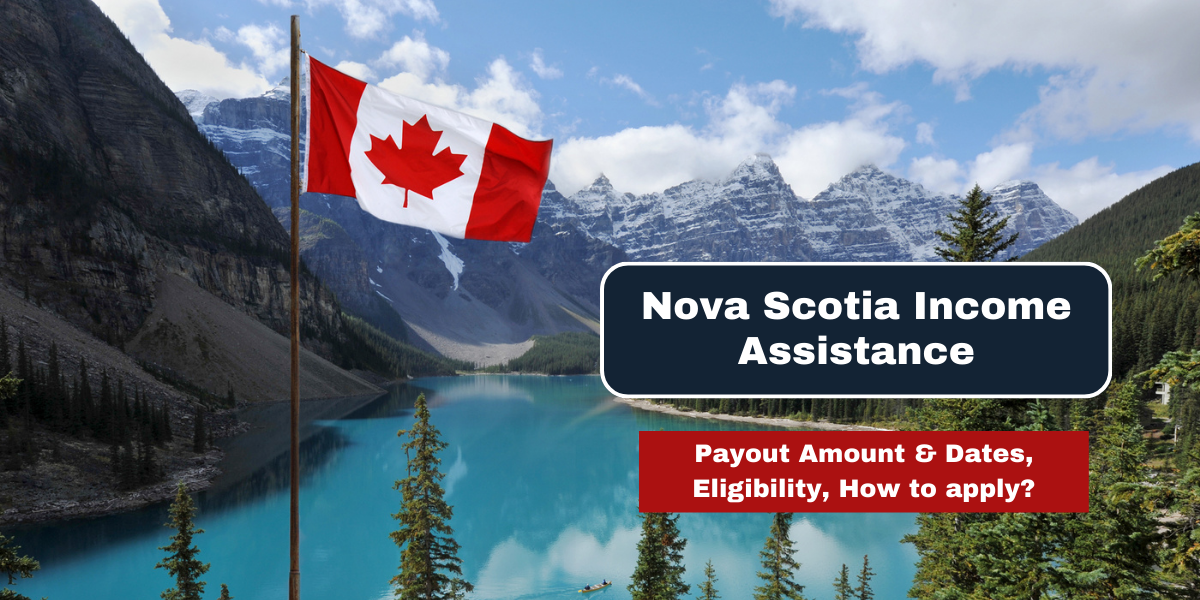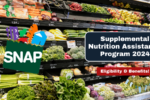The Low-Income Income Assistance program in Nova Scotia provides monthly financial support to eligible residents. Depending on your financial situation, the maximum monthly benefit may be up to $1,493. For details on eligibility, payment dates, benefit amounts, and other relevant information, refer to the information below.
Table of Contents
Nova Scotia Income Assistance
Individuals who meet the criteria may qualify for financial aid through Nova Scotia’s Income Assistance program to cover basic or specialized needs if they are struggling to support themselves or their family.
The program can assist with expenses such as housing, food, transportation, child care, and vision correction. Eligible low-income Nova Scotians can receive monthly payments under this program, with the amount reaching up to $1,393 depending on their living situation.
| 300 Reduction In Social Security Benefits |
| Thinx Lawsuit Class Action Payment 2024 |
| Johnson And Johnson Lawsuit 2024 |
| Canada 300 Federal Payment Announced |
| Ontario Teacher Pension Plan |
Nova Scotia IA Program Benefits
Income assistance in Nova Scotia is tailored to individual circumstances, beginning with a Basic Needs level and potentially including additional funds.
Basic needs cover expenses such as fuel, electricity, food, clothing, and tools. The amount you may receive depends on factors such as the number of dependents and whether you rent, own, or board. This amount is referred to as the SHR (Standard Household Rate).
The monthly amounts are detailed below:
| No of Recipients | No of Dependents | Rent/Own | Board |
| 1 | 0 | $686 | $608 |
| 1 | 1 | $962 | $627 |
| 1 | 2+ | $1,013 | $668 |
| 2 | 0 | $1,342 | $1,008 |
| 2 | 1+ | $1,393 | $1,049 |
Some Standard Household Rate categories offer significantly higher payment levels.
Standard Household Rate – Enhanced
The Enhanced Standard Household Rate provides $950 per month to eligible individuals. To qualify, you must be 55 years of age or older, between 16 and 18 years old, fleeing an abusive relationship, or have a disability or persistent mental, cognitive, or physical ailment that inhibits employment.
Standard Household Rate – Essentials
The Essentials Standard Household Rate offers $380 per month to all who qualify. This rate applies to individuals residing in hospitals, transition houses, rehabilitation programs, or homeless shelters, who do not own, rent, or board a home.
How to apply for the Nova Scotia IA Program?
Reach out to your local office or the Department of Community Services Intake Team at 1-877-424-1177 to speak with a caseworker about the application process.
Before calling your caseworker, make sure you have the following documents ready:
- Social Insurance Number (SIN)
- Bank statements
If additional information is required to clarify your situation, be prepared to provide it.
After your phone conversation, your caseworker will schedule a meeting with you. Be sure to bring the following items to the meeting:
- Driver’s license or Photo ID
- Bank statements
- Social Insurance Number (SIN)
- Income tax assessment forms
- Lease Agreement
- Bills for housing costs, such as utilities
You should receive a response from your caseworker regarding the status of your IA application within seven days of submission.
Eligibility Criteria
Eligibility requirements for the Income Assistance (IA) Program in Nova Scotia are as follows:
- It is required that you be a resident of Nova Scotia.
- The minimum age is 19, although there are limited exceptions for individuals between the ages of 16 and 18.
- You must be struggling to meet your basic financial needs.
- Recently, you must have been unable to find work or another source of income.
Indigenous individuals who do not live on a reserve are also eligible to apply. Those living on reserves should contact their band for financial assistance.
Individuals with disabilities may qualify even if they do not meet all general criteria, as long as they need financial help to cover their essential needs.
Nova Scotia Income Assistance Payment Dates 2024
Income assistance payments are scheduled for 2024 on the following dates:
| Month | Direct Deposit And Cheque Delivery Date |
| August 2024 | July 29, 30, & 31, 2024 |
| September 2024 | August 28, 29, & 30, 2024 |
| October 2024 | September 25, 26, & 27, 2024 |
| November 2024 | October 29, 30, & 31, 2024 |
| December 2024 | November 27, 28, & 29, 2024 |
| January 2025 | December 27, 30, & 31, 2024 |
Can working affect your Nova Scotia IA Payment?
The total amount of your IA Program payments may be reduced or withheld if you work while receiving them. However, this depends on your monthly income and the nature of your employment.
If you have a regular job, you can work regardless of any limitations you might have. If you are unable to work independently due to mental, physical, or cognitive challenges, you may be eligible for supported employment.
| Net Monthly Earnings | Amount of Money You Keep (Regular Employment) |
| $0-$250 | All |
| $250-$500 | $250 + 75% of money earned over $250 |
| $500-$750 | $437.50 + 50% of the money earned over $500 |
| Over $750 | $562.50 + 25% of money earned over &750 |
How does school effect Nova Scotia IA Payment?
Income Assistance remains accessible to students who qualify, if they fall into one of the following categories:
- You are enrolled in an upgrading program while working towards your grade 12.
- You have joined a training program to better prepare for a specific career path.
- Your postsecondary program lasts less than two years.
- You are participating in the Career Seek program and are enrolled in a two-year post-secondary program.
Conclusion
The Nova Scotia Income Assistance program plays a crucial role in supporting residents with financial challenges. By offering a range of benefits tailored to individual needs, it aims to help cover essential living expenses such as housing, food, and transportation. With flexible payment rates and considerations for various circumstances, the program ensures that eligible Nova Scotians can receive the aid they need. For those interested in applying, the process involves contacting local offices, preparing necessary documents, and awaiting a response. This assistance is vital for maintaining stability and improving the quality of life for many in the province.
FAQs
What documents are needed to apply for the Nova Scotia IA Program?
You will need your Social Insurance Number (SIN), bank statements, a driver’s license or photo ID, income tax assessment forms, a lease agreement, and utility bills.
How often are payments made under the Nova Scotia IA Program?
Payments are typically made monthly. Specific dates for 2024 can be found in the program schedule.
Can I work while receiving Income Assistance?
Yes, you can work while receiving assistance, but your payments may be adjusted based on your earnings.






